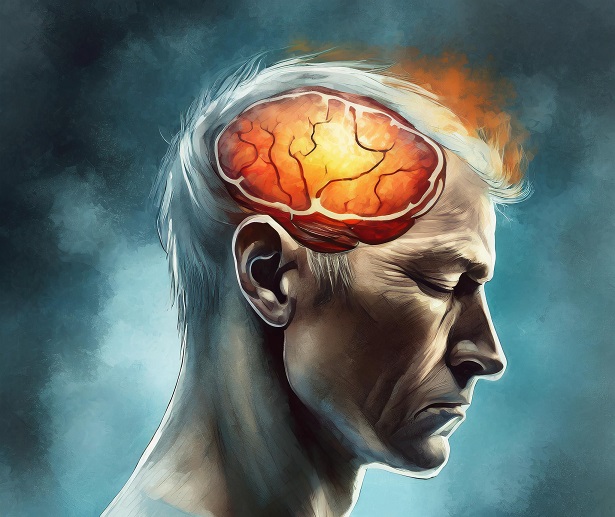Women are three times more likely than men to get Multiple Sclerosis.
Multiple sclerosis (MS) is a chronic autoimmune disorder of the central nervous system that can cause a range of symptoms, including fatigue, muscle weakness, numbness or tingling, and problems with coordination and balance. MS affects women more often than men, with women being three times more likely to develop the condition.
The reason for this gender disparity in MS is not fully understood, but researchers have suggested several potential factors that may contribute to the higher incidence in women. One possible factor is hormonal differences between men and women, with female sex hormones like estrogen and progesterone playing a role in modulating the immune system and potentially influencing the development of autoimmune disorders like MS. Other factors that may contribute to the higher incidence of MS in women to include genetic susceptibility, environmental factors, and differences in healthcare-seeking behavior or diagnostic patterns between men and women.
MS can be difficult to diagnose since its symptoms are similar to those of a variety of other neurological illnesses. However, if the doctors suspect you have this issue, they may refer you to a neurologist.
Dr. Sachin Kandhari
Multiple Sclerosis (MS) is a chronic disease that affects the brain, spinal cord, and optic nerves, causing problems with vision, balance, muscular control, and other body processes. While everyone (suffering from the ailment) is affected differently, some people may have moderate symptoms and require no therapy at all, while others may have difficulty getting around and performing daily duties.
MS is assumed to be an autoimmune disorder in which the body’s own immune system produces cells and proteins (antibodies) that destroy myelin, even though the causes are unknown (the fatty substance that protects our nerve fibers)
Despite the fact that MS is not a hereditary disease, it appears that genetic factors play a significant role in making some people more susceptible to acquiring the disease. Smokers are thought to be at an increased risk, and women are three times more likely than males to acquire MS.
How can you tell if you have Multiple Sclerosis?
The majority of individuals experience symptoms between the ages of 20 and 40, though this can vary depending on the location of the nerve injury. The disease can be mild, moderate, or severe, and depending on the extent of the damage, the brain fails to send proper signals throughout the body, causing nerves to malfunction.
Fatigue, difficulty walking, numbness and tingling, sexual problems, visual problems, speech problems, muscle weakness, stiffness, spasm, problem focusing or remembering, and bladder and bowel problems are all frequent MS symptoms to be aware of. In the early stages, other typical symptoms include:
Vision Problems
The inflammation of the nerves in the eye, known as optic neuritis, is a common early sign. Patients may suffer hazy or double vision at first, which is usually due to a problem with one eye. Vision loss worsens as the disease develops, however, absolute blindness is uncommon.
Tingling and Numbness Sensations
There may be tingling, crawling, or scorching feelings, as well as a loss of sensation. Patients may experience extreme heat or cold feelings. Symptoms usually start at the end of the legs or arms and progress up the limb to the beginning.
Muscle Weakness and Spasms
Patients may experience limb weakness, clumsiness, or heaviness. Finger dexterity may be a problem for them.
Problems with Balance and Coordination
Patients have a shaky stride and trouble walking regularly and staying balanced. Small objects may be difficult for them to grasp. Other typical MS symptoms, such as dizziness and tremor, can exacerbate these issues.
Fatigue
Fatigue is the most prevalent and debilitating symptom of MS, and it usually appears early on. Fatigue is usually severe in the late afternoon and improves in the early evening, and it is sometimes accompanied by a rise in body temperature. Almost all patients experience this as a serious symptom.
Please keep in mind that not all patients will experience all of the symptoms. In addition, most people with MS experience attacks, often known as relapses, when their disease deteriorates substantially. They’re frequently followed by a period of recovery during which the symptoms improve. Others’ illnesses continue to worsen over time.
Getting a Diagnosis
MS can be difficult to diagnose since its symptoms are similar to those of a variety of other neurological illnesses. However, if the doctors suspect you have this issue, they may refer you to a neurologist.
Because no single test can confirm or rule out the condition, a number of tests are carried out, including the following:
- Blood testing to rule out diseases like AIDS that have similar symptoms. Balance, coordination, vision, and other functions are tested to assess how well your nerves are operating.
- Furthermore, MRI is one of the best radiological imaging techniques for obtaining detailed images of the body’s structures.
CSF analysis
The presence of particular proteins in the cerebrospinal fluid (CSF), which cushions the brain and spinal cord, is a confirming test for the start of MS.
While there is no definitive cure for MS at this time, there are a variety of treatments available to help patients function better. Cyberdyne, South Asia’s first neuromodulation therapy, was recently developed at IBS Hospital in New Delhi, with the promise to help such patients recover and live a normal life.
scientifically proven effective alleviation and outcomeCyberdyne can assist patients to recover from MS-related paralysis and, when combined with neuro rehab, can also aid with balance issues. Furthermore, sacral neuromodulation treatments have s in patients suffering from bladder and bowel incontinence as a result of MS.
Click here for more information.
 Shalkot The Innovators
Shalkot The Innovators




